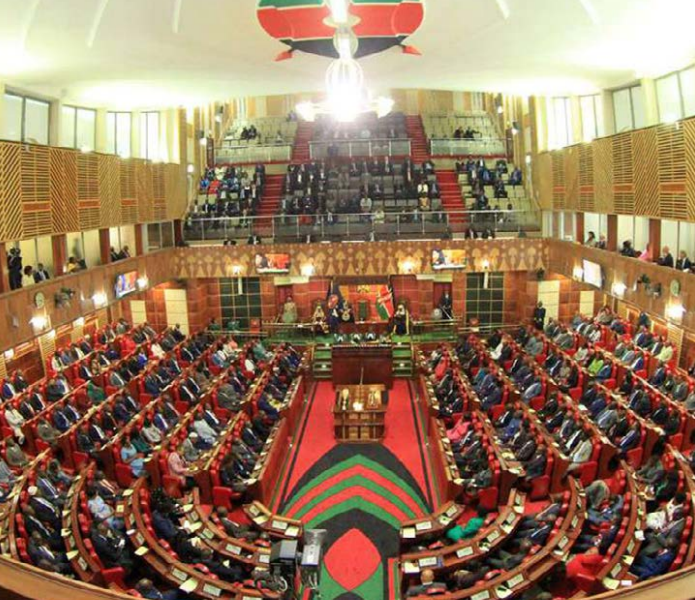NTSA move to streamline transport network companies is a wake up call to data commissioner

The National Transport and Safety Authority (NTSA) has moved to streamline digital hailing companies operating in the country. This is after NTSA issued a directive to digital hailing transport companies to register afresh with the Authority.
This, NTSA said, was a decision reached by stakeholders in efforts to implement the Transportation Network Companies, Drivers, and Passenger Rules (the ‘Rules’) that became effective on June 20, 2022, following its gazettement. Transport Network Companies (TNC) and drivers in operation before the gazettement of the Rules had 90 days to comply; period which lapsed on September 20. NTSA’s directive to register for new licenses is time bound with the companies given until October 17, 2022, to ensure compliance.
Under the Rules, the TNC have to ensure registration with the Office of the Data Commissioner among other requirements that will be considered during every annual renewal of the licenses. The Rules require the TNC to ensure that before a trip taken by a passenger commences, information such as registration number of the vehicle, name and photography of the driver, model and make of car and estimated fare are displayed. The Rules also provide for eight hours maximum use on the transport network system platform, by automatically locking out the driver for a period of four hours. This is to protect the driver from continuously working without resting which poses as a risk to the passengers and themselves.
The Rules also require the TNC to ensure accurate information relating to the passengers is captured upon subscription to the companies’ network. Information collected by the TNC from either the driver or passenger shall be stored and processed in accordance with the Data Protection Act. Information collected, processed and stored shall be retained for a period of three years.
Data collected, processed and retained by the TNC for the three year period includes: method of payment, location, date and time of both pick up and drop off, the name and relevant identification details of the passenger among others. NTSA’s Rules are timely as there has been hue and cry from the public over poor treatment and insecurity while using the digitally hailed taxis.
Data protection: A case of data wrangles between food delivery apps and digital kitchens
However, it is high time for the Office of the Data Protection Commissioner to protect Kenyans from invasive global trends such as recent data wrangles between food delivery apps and digital kitchens. US based Digital Restaurants Association associated with former Uber CEO Travis Kalanick dark kitchens have, as their goal, to access customers’ data retained by food delivery apps. Majority of the food delivery apps in Kenya are owned by digital TNC such as Uber, Bolt and Little Cab. The same TNC required to store data for three years in regards to transportation network services should also be regulated in terms of data collected, processed and stored out of the food delivery services.
Data is king. The fight for data witnessed by Kalanick’s CloudKitchen Ventures will sooner than later be experienced in Kenya with cloud kitchens and restaurants wanting to access their customers data. The concept of a cloud kitchen is the setting up of a kitchen for purposes of providing only food delivery such as Kune which has since shut down. This sector in the food industry expanded exponentially during the Covid-19 pandemic times where dine-in restaurants were closed and they offered food at cheaper prices. This led to partnerships with the top brand food delivery apps such as Uber Eats, and Bolt Food among others.
The risk posed in such partnerships includes who owns the data? The cloud kitchens or restaurant would argue that the customers’ data belong to them as they are the reason why the customer would use the app and vice versa. This is what the Digital Restaurant Association in the US is fighting for together with challenging fees. Arguments in favor of either side can be brought forth. The food delivery app would require the data to enable its riders save on time and cost in locating a repeat customer placing a delivery order. Effectively improving delivery experience.
Cloud kitchens and restaurants will also need to access customers data for reasons such as developing a relationship with customers by personalising customers’ tastes, preferred or favorite meals, issuing discounts on special occasions, expanding customer reach and improving on sales.
Currently, there is a lack of an understanding on who owns customers’ data under this particular food sector that has embraced the use of technology. The sector has a promising exponential growth as such, the need to call upon the Office of the Data Commissioner to come up with regulations on data ownership in this sector similar to that of NTSA that provides clarity to the stakeholders.

